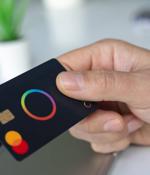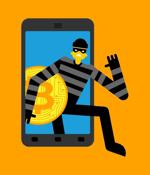Security News

Oh, turns out there are some things money can buy Mastercard has added another security asset to its growing portfolio, laying down $2.65 billion for threat intelligence giant Recorded Future.…

Amazon mistakenly sent out purchase confirmation emails for Hotels.com, Google Play, and Mastercard gift cards to customers, making many worried their accounts were compromised. The emails were sent out last night, with customers reporting receiving three separate emails from Amazon Prime for each alleged gift card purchase.

MasterCard has named its effort Crypto Secure and says it "Allows to better assess the risk profile of crypto exchanges or other providers." Kelly told The Register that crypto exchanges are currently rated as similar risks to purveyors of gambling and prostitution - sectors known as "Risky and frisky" in the payments industry.

Mastercard announced a new Start Path global startup engagement program dedicated to supporting fast-growing digital assets, blockchain and cryptocurrency companies. As a continuation of Mastercard's digital assets work, seven startups have joined the program, including GK8, Domain Money, Mintable, SupraOracles, STACS, Taurus, and Uphold, and together with Mastercard seek to expand and accelerate innovation around digital asset technology and make it safer and easier for people and institutions to buy, spend and hold cryptocurrencies and digital assets.

Mastercard announced it will enhance its card program for cryptocurrency wallets and exchanges, making it simpler for partners to convert cryptocurrency to traditional fiat currency. Working with Evolve Bank & Trust and Paxos Trust Company, the leading blockchain infrastructure and regulated stablecoin issuance platform, and Circle, a global financial technology firm and the principal operator of the USD Coin, a dollar digital currency or stablecoin, Mastercard and its partners will test this new capability to enable more banks and crypto companies to offer a card option to people wanting to spend their digital assets anywhere Mastercard is accepted.

Mastercard took steps to advance its identity verification efforts with the acquisition of Ekata for $850 million. "With the addition of Ekata, we will advance our identity capabilities and create a safer, seamless way for consumers to prove who they say they are in the new digital economy."

Mastercard on Monday announced that it's acquiring digital identity verification company Ekata for $850 million. The acquisition of Seattle-based Ekata is part of Mastercard's plan to boost its identity verification capabilities.

Mastercard is expanding the Engage platform, offering customers easy access to a growing network of qualified technology and fintech partners that can quickly deploy Mastercard Digital First solutions. These solutions will enable customers to provide entirely digital payment experiences for consumers, from acquisition and card usage to management and engagement, with a physical card option.

Samsung Electronics, Mastercard, Samsung Card, have signed a memorandum of understanding to develop a biometric card that features a built-in fingerprint scanner to authorize transactions securely at in-store payment terminals. The biometric authentication capability allows safer interactions with reduced physical contact points by eliminating the need to enter a PIN on a keypad. It also adds an extra layer of security to currently available credit cards by verifying the cardholder's identity via a unique fingerprint.

Cybersecurity researchers have disclosed a novel attack that could allow criminals to trick a point of sale terminal into transacting with a victim's Mastercard contactless card while believing it to be a Visa card. The research, published by a group of academics from ETH Zurich, builds on a study detailed last September that delved into a PIN bypass attack, permitting bad actors to leverage a victim's stolen or lost Visa EMV-enabled credit card for making high-value purchases without knowledge of the card's PIN, and even fool the terminal into accepting unauthentic offline card transactions.